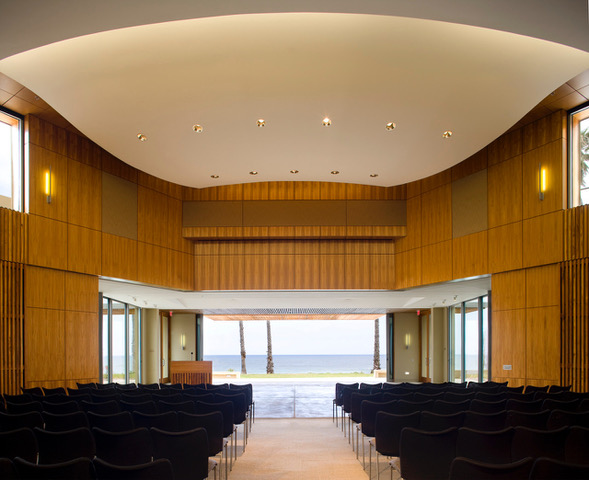
Institutional Seminar Series
(in person)
Thursday, May 25th, 2023
at Scripps Seaside Forum Auditorium
12 p.m. Talks begin w/ Q&A
Pizza to be served after, will have vegan and gluten free options
-------------------------
TITLE: Microbial sensors of a changing ocean environment
ABSTRACT: Marine microbes control marine biogeochemical cycles and form the base of marine food webs. The structure of microbial populations is far more dynamic than multicellular organisms, shifting rapidly in response to changing environmental conditions. These shifts are easily detected via observations of environmental DNA sequences, and current technology allows for the analysis of hundreds to thousands of discrete samples for relatively low cost. The large number of available samples and fast response time of microbes to changing environmental conditions allows us to use microbes as sensors of ecological change. By using machine learning techniques to train models based on microbial community structure we can explicitly predict key environmental parameters that are otherwise difficult to predict, including biogeochemical standing stocks and rates. These models not only expand our knowledge of biogeochemical inventories and balances, but the analysis predictive performance for individual features provides insights into the microbial mechanisms underlying biogeochemical processes. I’ll further describe our approach and the implications for global biogeochemical surveys, and present examples from coastal and pelagic systems in Antarctica and Ecuador, and at the Scripps Ecological Observatory.
BIO: Jeff received his PhD from the University of Washington where he studied the structure and genetics of microbial communities in sea ice with Jody Deming. He arrived at SIO after a postdoctoral fellowship at the Lamont-Doherty Earth Institute at Columbia University. His lab uses sequence based approaches, flow cytometry, modeling, and other techniques to explore the structure and function of microbial communities and to understand the role of microbes in the Earth system.
TITLE: The Role of the Diving Sector in Achieving Sustainable Development Goals
ABSTRACT: Ecotourism presents an opportunity to provide equitable benefits to local communities; serve as a platform for environmental education; and it can be leveraged to support conservation initiatives, shifting away from traditional mass tourism and other forms of unsustainable marine use. Marine ecotourism sectors, such as scuba diving, are increasingly important for local economies but their aggregate benefits are often overlooked in global ocean economy discussions. Here, I present a first estimation of the global economic value of scuba diving, including 11,500 identified scuba dive operators across the world, and some ideas to enhance the diving sector’s participation in the Blue Economy. Diving represents one of the only endeavors that enables citizens to actively support the Blue Economy and help to achieve the United Nations Sustainable Development Goal 14, “Life Below Water”; therefore, the scuba diving sector could be at the forefront of transformative change for local and global ocean equity and sustainability.
BIO: Fabio is a numerical ecologist with extensive expertise in marine conservation and data science. Holding a PhD in Marine Ecology and Remote Sensing, Fabio currently serves as a postdoctoral researcher at Scripps Institution of Oceanography in the Aburto Lab. His research focuses on critical topics such as blue carbon and IUU fishing, while spearheading the Atlas Aquatica initiative. This project assesses the economic value of the global scuba diving industry and its role in marine conservation, the blue economy, and sustainable development goals. Fabio's work combines scientific research, data science skills, and a passion for marine conservation, to make a significant impact in shaping sustainable strategies for the protection of our oceans.
*Talks will not be recorded.




